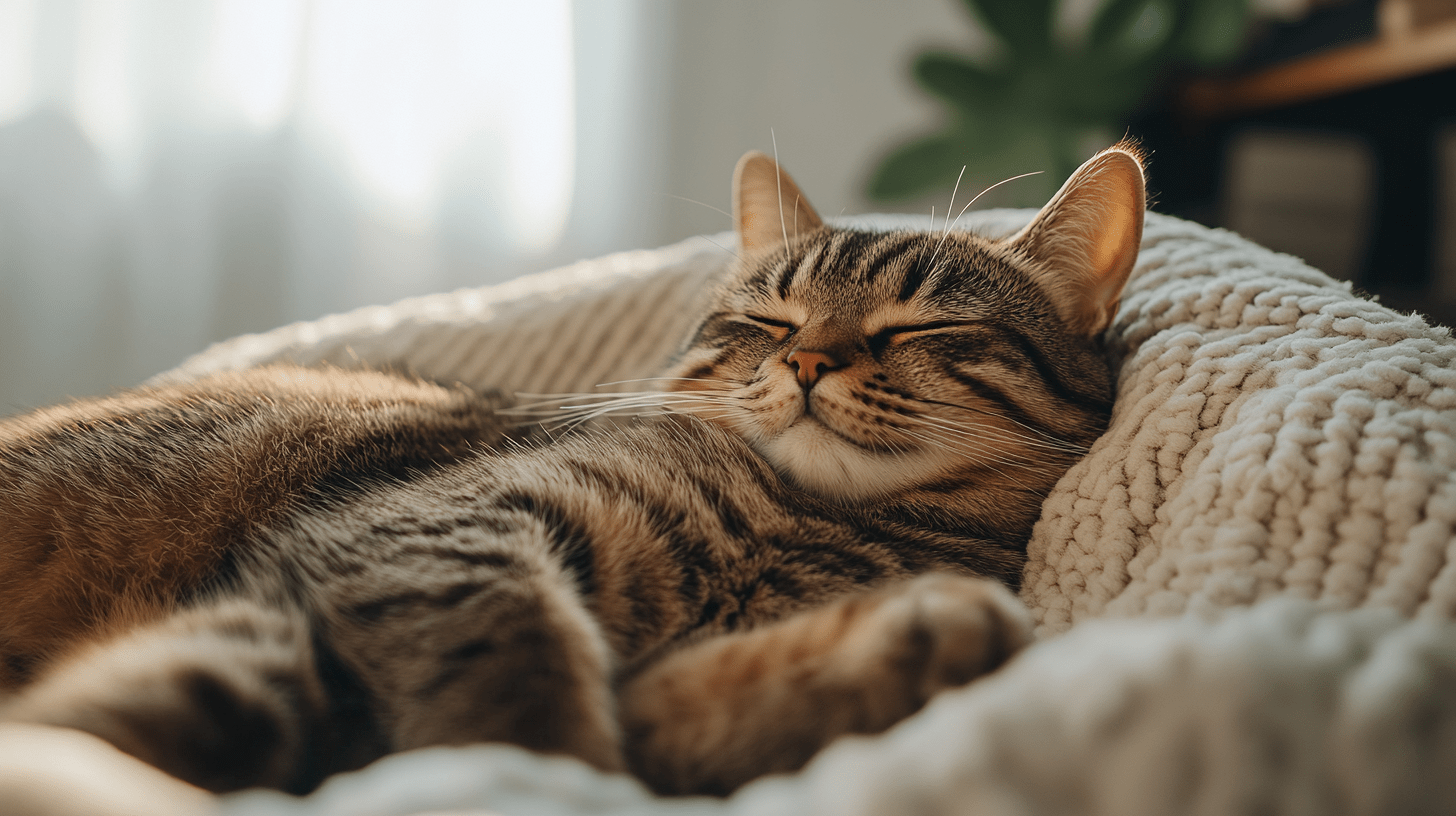We adore our feline companions, yet recognize that events like veterinary checkups, changes in their established routines, and introductions to new surroundings can cause considerable stress for our typically composed cats. As devoted pet owners, you strive to provide a secure and comfortable life, but sometimes, feline anxiety still manifests, negatively affecting your cat's overall well-being and the special bond you share.
Notably, the food your cat consumes can significantly influence their stress and anxiety levels. This blog post explores how specific dietary strategies can contribute to a calmer and more content feline friend, drawing upon current research in animal nutrition.
Summary
Understanding feline stress: Beyond the hissy fit
Before exploring dietary solutions, it's crucial for you to recognize the indicators of stress in your cat and understand the factors that can trigger these feelings.
Common stressors for your cat
Cats thrive on predictability, and disruptions to their familiar daily life or environment often trigger stress. These disruptions include necessary yet anxiety-inducing events such as vet visits and transportation, exposure to unfamiliar environments, interruptions of their regular feeding or sleeping schedules, and sudden loud noises or other unexpected changes in their surroundings.
Recognizing the signs of stress
When your cat experiences stress, they may display a variety of behavioral and physical symptoms. Behavioral changes can include increased hiding, more frequent vocalization, shifts in activity levels, and inappropriate elimination outside of their litter box.
Physical signs that may indicate stress include sweaty paws, dilated pupils, panting, an elevated respiratory rate, and digestive issues like vomiting or diarrhea.
How diet influences cat anxiety
A growing body of research reveals the intricate relationship between the gastrointestinal system and the brain, a connection commonly referred to as the gut-brain axis. The vast community of microorganisms residing in your cat's gut produces substances that influence their mood and behavior. This means that your cat's nutritional intake impacts not only their physical health but also their emotional state and stress responses.
Dietary ingredients that promote calmness
Alpha-s1 casozepin: the milk-derived calming agent
This bioactive peptide is derived from the hydrolysis of bovine alpha-s1 casein, a milk protein. It exerts calming and anxiolytic (anxiety-reducing) effects by interacting with GABAA receptors in the brain.
How it may help: studies suggest that alpha-s1 casozepin can influence the autonomic nervous system, which regulates involuntary bodily functions such as heart rate and sweating. A study with 60 adult cats found a significant absence of sweaty paws in cats treated with a high dose (75 mg/kg q24 h for three days) of α-s1 casozepin during stressful veterinary visits, specifically in the waiting area and examination room. While the study also measured fecal cortisol metabolites (FCMs), a small but insignificant reduction was observed.
Where to find it: Alpha-s1 casozepin is available as a dietary supplement for cats.

L-theanine: the tea-derived relaxation promoter
This amino acid, naturally present in tea leaves, is recognized for its relaxing properties without typically causing drowsiness.
How it may help: research in humans, laboratory animals, and dogs has indicated that L-theanine can promote the generation of alpha waves in the brain, which are associated with a state of relaxed alertness. An open-label field study involving 33 privately owned cats exhibiting stress-related signs (inappropriate urination/defecation, fear-induced aggressiveness, hypervigilance/tenseness, or physical/functional manifestations of stress) for at least one month showed that administration of L-theanine (Anxitane®, 25 mg twice a day for 30 days) resulted in a significant reduction in the median scores of 20 stress-related parameters.
Notably, 91% of the cats had a reduced global stress score at the end of the study, and owners reported significant improvement in stress-related signs, especially inappropriate elimination.
Where to find it: L-theanine is available in some calming supplements for cats and is also included in certain veterinary diets designed for stress management.
L-tryptophan: the serotonin precursor
This essential amino acid serves as a precursor for the synthesis of serotonin, a neurotransmitter playing a vital role in mood regulation and stress response.
How it may help: by supporting the production of serotonin in the central nervous system, adequate levels of L-tryptophan in your cat's diet may help to stabilize mood and reduce anxiety-related behaviors. Studies in dogs have shown that dietary tryptophan supplementation can increase plasma tryptophan concentration and improve stress-related anxiety behaviors. While L-tryptophan is often studied in conjunction with alpha-casozepin in cats, its role in stress management requires further individual verification in felines.
Where to find it: some veterinary diets formulated to manage stress in cats include added L-tryptophan.

Nourishing a calm and happy cat: A comprehensive approach
Managing stress and anxiety in your cat often necessitates a comprehensive approach that may include environmental enrichment, behavioral modification techniques, and, in some cases, medication. However, don't underestimate the significant role of nutrition.
By understanding the established connection between diet and your cat's emotional well-being, and by considering the potential benefits of specific dietary components such as alpha-s1 casozepin, L-theanine, and L-tryptophan, you can take a proactive step in helping your feline companion feel more calm, secure, and content.
The information in this article is based on the following scientific publications:
Dramard, V. (2018). Effect of L-theanine tablets in reducing stress-related emotional signs in cats: an open label field study. BMC Veterinary Research, 14(1), 315.
Fan, Z., Bian, Z., Huang, H., Liu, T., Ren, R., Chen, X., Zhang, X., Wang, Y., Deng, B. and Zhang, L. (2023). Dietary Strategies for Relieving Stress in Pet Dogs and Cats. Antioxidants, 12(3), 545.
Makawey, A., Iben, C. and Palme, R. (2020). Cats at the Vet: The Effect of Alpha-s1 Casozepin. Animals, 10(11), 2047.
Pezzali, J.G. (2023). Functional Amino Acids in Dogs and Cats: Implications for Overall Health. Journal of Animal Science, 101(Suppl. 3), 175.
Looking for a solution? Start here
Stylla Calmness for cats
Supports relaxation and emotional balance with amino acid-based formulation
- Promotes emotional balance and relaxation
- Helps maintain balanced behaviour
- Supports healthy physiological equilibrium
Made in Switzerland with strict quality standards





